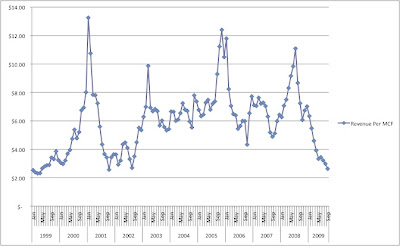In my last post, 10 Questions An Oil and Gas Company Should Ask Their Auditors, I listed off 10 questions that Auditors should be asked to get an understanding of how they approach auditing your financials. This is especially critical as TSX listed oil and gas companies are about to start the switch to International Financial Reporting Standards.
How do your auditors authenticate your master asset list or well list to ensure accuracy?
This is an important question to ask your auditor, as an oil and gas company’s primary asset typically will be their reserves. Hard to believe, but there are few companies that even have an accurate master wells list. Smaller companies typically do, if they have high ownership and few wells, but Argentis Group had one client with production of about 300 barrels a day who stated that they had 59 gross wells and 56 net wells in their Annual Information Form (AIF) when in fact we uncovered over 200 gross wells and 56 net wells. Of the 56 net wells that they claimed they had, we had 20% different wells then they listed. Another firm that Argentis Group worked with had just gone through a 3-month process of creating a master well list, but we were still able to identify 4% of their wells missing of the newly made master list and 2% of the overall proved reserves missing.
The reason that companies do not have an accurate master well list is that there may be several different departments that keep a well list (no two being the same in most cases) and no true owner of the well list. For example, the Land department and the reserves department may have a list, engineering might have a list and finance might say that their Asset Retirement Obligation (ARO) list might be the well list, but basically, there is no authentic master well list.
In order for an auditor to do their job thoroughly and to have a starting point, they should have a process to look at a master well list with meta data such as working interests, royalty rates, operatorship, etc. I know that in reality the auditor only has to take the information that you provide and authenticate it, but for the fees that they charges, they should at least be able to help with a master well list.
If your auditor doesn’t have a process for assisting you create a master well list, then how do they know that you ARO’s and the wells on the ARO List are accurate. If your auditor doesn’t have or can’t compile a master well list, then they don’t know your reserves and how do they know if all your reserves are being tied up to a cash generating unit?
If you look at a company having an inaccurate master well list, then they are more than likely understating or overstating Depletion, Depreciation and Amortization (DD&A) costs. For example, let’s say that a company has $100 DD&A costs overall and you have 10 BOE as reserves. This translates to $10/BOE in DD&A. If you find 2 more BOE in reserves that you didn’t know you had, then you end up with $8.33/BOE in DD&A, which is derived from $100 (total DD&A costs) divided by 12 BOE (the new amount of reserves). In this case, the oil and gas company is overstating their DD&A costs by 20%. In addition, this company will now be able to increase their Net Asset Value (NAV) by potentially 20% through the additional reserves that were found.
The bottom line is, if your auditors don’t have a master well list or have no way of providing you with a master wells list, then they are doing you a disservice. You should be demanding more from your audit firms and be asking for more rigor in their process. If they can’t provide you with an accurate well list and help boost your overall value of your company, then you should look for a firm that will help you. Argentis Group can help create the accurate well list for your company.
These opinions are mine and may not reflect your view. If you would like to contact me, then please feel free to do so at info@argentis-group.com. Argentis Group assists oil and gas companies with operational audits to identify areas to reduce costs, increase revenues and increase the overall asset value of an oil and gas company.





